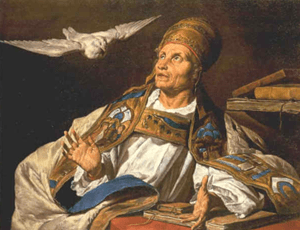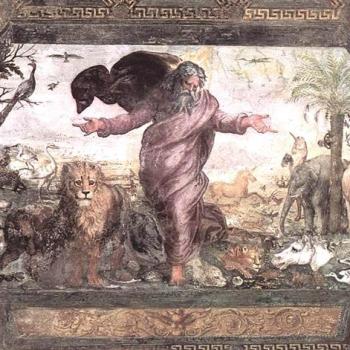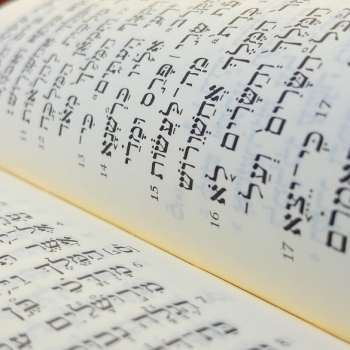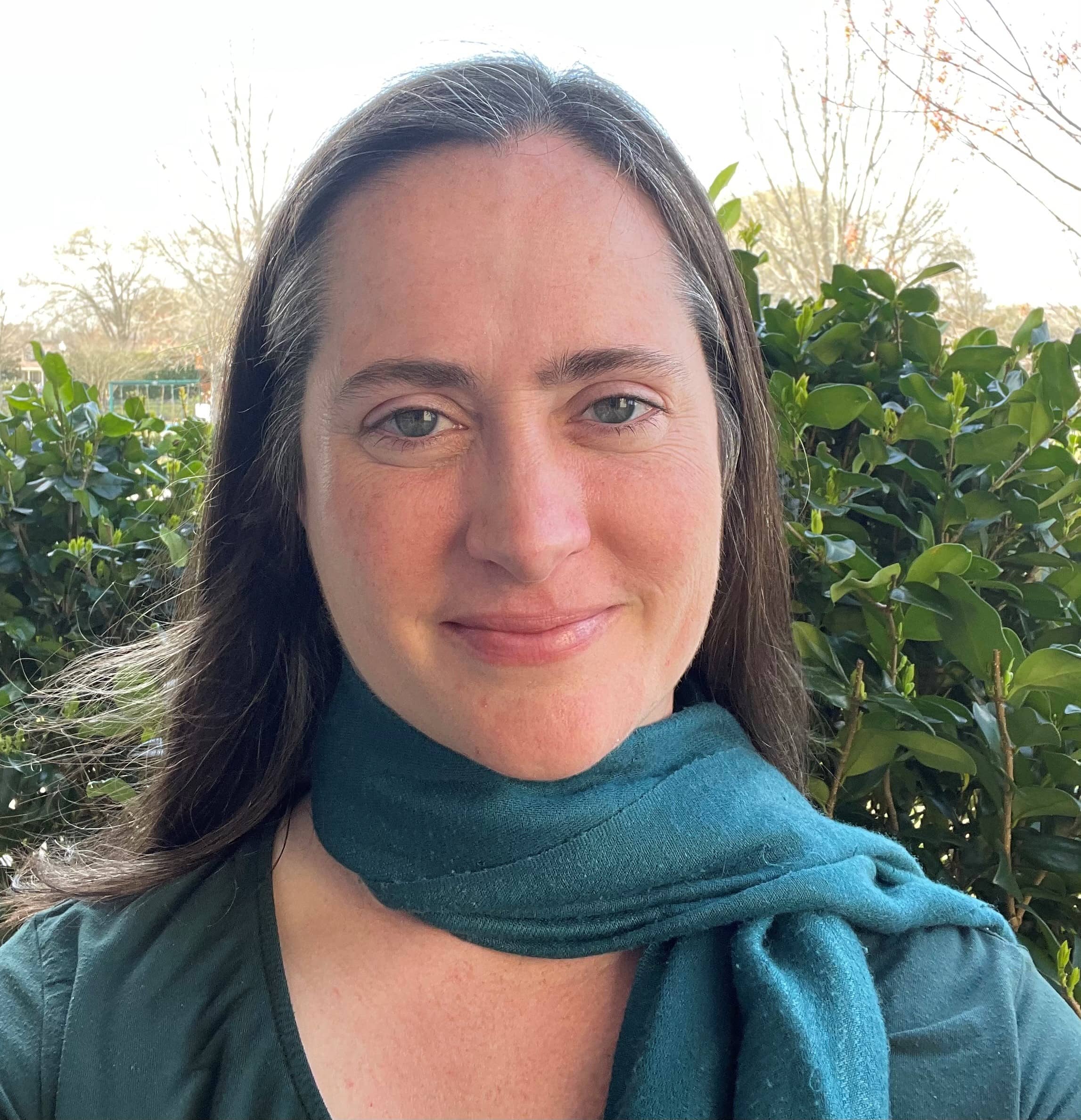
Doctor of Dire Straits
Cinematographers and textbook editors have a talent for lending to history grandeur and pathos not experienced by the people who lived it.
Gregory, a patrician living in a city that had once governed an empire, perceived no tragic sheen on the troubles of his time. Late 6th century Rome was abused by corrupt officials and haunted by the specter of invasion. Over the course of Gregory’s life, he would know violence, flooding, famine, and plague.
After serving his city energetically and admirably as prefect, he turned his estates into monasteries and tried to retire to a life of prayer. He treasured his time spent in study and silence.
But God exalts the humble, and He calls forth to leadership the very souls who never sought it. And so, the pope sent Gregory as his representative to the seat of imperial power, Constantinople. When that assignment ended, the pope asked him to be his secretary. When the pope succumbed to plague, the whole city called upon Gregory to replace him. As prefect, he had maintained the aqueducts that supplied fresh water to the city; now, he would have to turn his attention to the aqueduct of grace, that is, the Church.
None of this pleased Gregory. His experience might have made him the perfect candidate, but it also gave him a clear picture of the tribulations to follow. He flatly refused to be pope and sent a letter to the emperor appealing for help.
Later, he wrote a treatise on pastoral leadership that featured these section headings:
Of those who are able to profit others by virtuous example in supreme rule, but fly from it in pursuit of their own ease.
That those who fly from the burden of rule through humility are then truly humble when they resist not the divine decrees.
He wrote those words when he had become pope; they help us understand how he came to accept a station he had never craved and had actively resisted. Like all the saints before and after him, he said with Christ: not my will, but yours.
The Bishop’s Ring of Power
A man whose contemporaries called him “the great” and whom later generations hailed as both saint and doctor of the Church has many lessons to teach us, too many for one session.
Let us focus on a particular work, On Pastoral Rule. The mantle of the apostles comes with a special responsibility to teach, to sanctify, and to rule. But what manner of man ought to come to rule? What manner of man ought not to come to rule? Human nature has not changed in these last millennia, and Gregory’s wisdom in these matters holds true for today.
At the very outset, Gregory winnows the field of candidates for pastoral office, stating clearly:
That the unskillful venture not to approach an office of authority.
He reproves all those who, though “they know not how to measure themselves, are covetous of teaching what they have not learned; who estimate lightly the burden of authority in proportion as they are ignorant of the pressure of its greatness.” Such men would seek to take “the citadel of teaching” by force, and should be repelled at the gate.
What is needed is a desire to be a disciple, not a desire to be the teacher. Gregory advises that you wait until the master beckons you to come a little higher, and then only undertake your duties in fear and trembling.
And it is not enough to have the right credentials, though modern people hold a strange talismanic belief in the power of diplomas. Bishops, of course, need to spend deep time learning God’s scriptures, and they must be given extensive training in theology. But the proof of learning is not a certificate of time served. Apprentices do not become journeymen or masters until they demonstrate that their learning has become inseparable from their identities. In other words:
That none should enter on a place of government who practice not in life what they have learned by study.
Even the truly knowledgeable who practice what they preach should shrink from rule:
That for the most part the occupation of government dissipates the solidity of the mind.
Gregory felt the weight of government very keenly. Adversity is not glamorous, and people sometimes die physically and spiritually from mishandling it. But bishops must also fear prosperity, which engenders blind spots and comes with its own temptations. Tolkien was hardly the first writer to observe that power erodes judgment and virtue.
One Love, Many Homilies
After considering what sort of person should be elevated to leadership, On Pastoral Rule treats the habits of a bishop.
The bishop must hold himself to the highest standard: cultivation of purity, zeal against his own vices, constant good example; he must speak with great discretion, show compassion at a personal and not merely administrative level, and frequently spend time in contemplation and silence.
The work – which was composed as a letter to a friend and fellow bishop – could have ended there, but Gregory went on to consider a bishop’s preaching. So intrinsic to pastoral rule is preaching that the work would, to Gregory’s mind, be incomplete.
In books three and four, Gregory argues that personalized exhortation is not just ideal, but necessary: a food that cures one person might poison another. As God has accommodated himself to humanity in the Incarnation, the preacher should accommodate his presentation of the truth to his hearers. For example, he should admonish the joyful differently from the sad, the simple from the insincere, the meek from the passionate, the meek from the fickle, the slothful from the hasty.
Gregorian Prescriptions
How can we apply Gregory’s wisdom today?
-- Gregory did not seek out the vocation he so nobly fulfilled and described. What would have happened if the people of Rome had not insisted on his papacy? Does the Christian community today call forth the humble and virtuous and recruit them into leadership? Do parents, teachers, and other mentors suggest to seemingly uninterested teens and college students (and bachelor brothers and uncles and grandfathers) that the Church might have need of their skills? Perhaps our language of vocation has grown lopsided, and we encourage discernment based too heavily on one’s inclinations and pursuit of feeling fulfilled. Proper discernment is balanced with looking beyond oneself and listening for a call that comes from without, not within.
-- Do we warn potential bishops of the dangers they will face? Do we make them read Gregory the Great every year on the anniversary of their installment? Do we call bishops and remind them that they are but men, and that their station has endangered their souls? Do we pray for the holiness of our bishops?
-- The level of personalization that Gregory recommended and the level of expertise about a diocese that Gregory brought to bear suggest the need for smaller local churches. If a bishop today is to have a chance at rightly ruling, especially in a crisis, he needs to be able to know his flock. The archdiocese of Los Angeles has over 4 million Catholics and a population of over 11 million. The diocese of Charleston includes the entire state of South Carolina. Do these sound like local churches one could know or govern, or do they sound like massive administrative entities? The Church could consider whether a mega-diocese is worth the supposed economies of scale at the cost of good shepherding.
A Second Opinion from Another Dr. Gregory
Gregory the Great asked for too much?
In our time, and in almost every era, skepticism over the virtues of structures and disgust with the scandalous failures of leaders has plagued the Church. Is it possible that we would do better not to have leaders at all? To be like Monty Python’s constitutional peasant, taking it in turns to govern our fellows?
The very idea that we can learn from the doctors of the Church assumes that there is such thing as a Church, and the existence of the Church depends on structure and leadership. In other words, we will continue to have bishops, and Gregory hopes that they will strive for holiness – no, this is not too much to ask.
A distinctive feature about institutional Christianity is that it preserves – in Scripture and in written tradition – scathing indictments of its leaders. Our foundational tests, the Gospels, portray Peter talking nonsense at the Transfiguration, suggesting Jesus abandon His plans for the redemption of humanity, running away just when he was most needed, and flatly denying his association with Christ. Our bishops will probably not be perfect, but that is not a reason for them to cease striving for perfection. Proper criticism from fellow bishops and from the laity is in order, as is fraternal correction at a distance of time.
Gregory Nazianzen was a saint and doctor of the Church who predated Gregory the Great by over two centuries and whom the latter often quoted. Nazianzen had served as bishop of Constantinople, and upon retirement from that office he had things to say about the episcopate. With savage wit, he critiqued the lordliness of prelates:
I was not aware that… our belly ought to hunger for the enjoyment of the goods of the poor, and to expend their necessaries on superfluities, and belch forth over the altars. I did not know that we ought to ride on splendid horses, and drive in magnificent carriages, and be preceded by a procession and surrounded by applause, and have everyone make way for us, as if we were wild beasts, and open out a passage so that our approach might be seen from afar.
He also had choice words for meetings of bishops, necessary as they might be:
Synods and conventions I salute from afar, since I have experienced that most of them (to speak moderately) are but sorry affairs.
Despite these criticisms, Gregory Nazianzen and Gregory the Great both believed that the Holy Spirit governed the Church through the broken successors of the broken apostles. How else could the Spirit work? There are no perfect humans from among to choose leaders.
The answer, as always, is to turn to the Lord in supplication.
In concluding On Pastoral Rule, Gregory the Great begged for prayer:
…being intent on showing what a Pastor ought to be, I have been as an ill-favored painter portraying a handsome man; I direct others to the shore of perfect, while myself still tossed among the waves of transgressions. But in the shipwreck of this present life sustain me, I beseech you, by the plank of your prayer, that, since my own weight sinks me down, the hand of your merit may raise me up.
When he died in his mid-sixties in AD 604, Gregory left behind a rich legacy. But perhaps the lesson we most need today is the message that good shepherding matter, and that our bishops need a lot of prayer.
3/21/2022 3:18:07 PM





